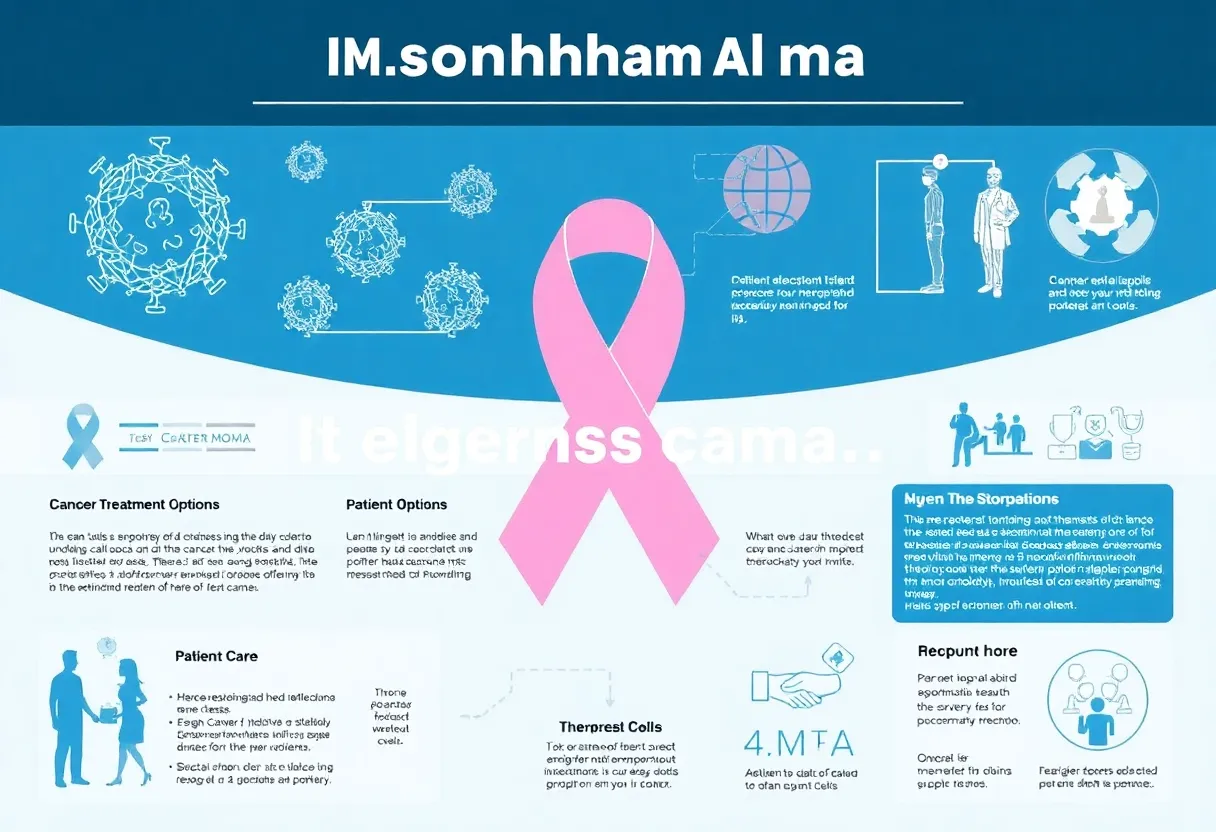News Summary
Explore the critical aspects of mesothelioma, focusing on diagnosis, treatment options, prognosis, and the latest trends in patient care.
Mesothelioma: Key Insights into Diagnosis, Treatment, and Prognosis
Every year in the United States, around 3,000 new cases of mesothelioma are diagnosed, a rare but aggressive cancer primarily linked to asbestos exposure. Many newly diagnosed patients often find themselves grappling with a barrage of unfamiliar information regarding the disease, its prognosis, and available treatment options. The situation can be overwhelming, especially given the stark reality that the life expectancy for patients without treatment is typically only about six months.
Treatment Can Extend Life Expectancy
Fortunately, treatment can significantly extend life expectancy, often dependent on the type of mesothelioma a patient has. Several factors, including the cancer stage, the specific cell type, patient age, and overall health, play vital roles in determining an individual’s prognosis. The complexity of this illness underscores the necessity for patients to consult mesothelioma specialists who can deliver tailored information and insights, aiding in informed decision-making regarding treatment.
Some patients, however, opt not to receive any treatment for various reasons, whether due to advanced age, health complications, or fear of side effects. This emphasizes the need for open discussions with care teams, allowing patients to address concerns and preferences regarding their treatment options.
Symptom Management and Quality of Life
While treatment may not yield a cure, it can effectively alleviate symptoms and enhance the quality of life for mesothelioma patients. Advances in care have led to less invasive treatment options, making management of the disease more bearable. With ongoing clinical trials exploring new therapies, there is growing hope for better outcomes in the future.
Survey Insights Reveal Treatment Landscape
An exclusive survey sheds light on the experiences of mesothelioma patients, revealing that about 35% were eligible for surgery, and over 11% reported achieving remission through treatment. The survival rate is markedly higher for patients receiving effective treatment compared to those who do not pursue any interventions. Among those who experienced remission, around 76% had undergone chemotherapy alongside surgery.
Interestingly, pleural mesothelioma, which constitutes 81% of all cases, only had 8% of survey respondents reporting remission. In contrast, about 16% of patients with peritoneal mesothelioma achieved similar outcomes. Chemotherapy remains the predominant treatment choice, utilized by 32% of patients, even with its common side effects, such as fatigue, nausea, and cognitive challenges.
Impact of Immunotherapy and Surgery
Immunotherapy has emerged as part of the treatment plan for 22% of surveyed patients, with Opdivo being the most commonly administered drug. Side effects of immunotherapy can include fatigue, body aches, and loss of appetite or weight. Surgical intervention was reported by 19% of patients, with a notable 23% of those undergoing surgery achieving remission.
Despite the potential benefits, many eligible patients choose to forgo surgery, often due to advanced age, comorbidity, or a perception of increased risks. For those prioritizing recovery time and overall quality of life, less invasive options like pleurectomy/decortication (P/D) are becoming more favorable.
Challenges in Accessing Specialist Care
Access to mesothelioma specialists remains an issue, with only 25% of survey participants seeking specialized care. Moreover, merely 8% of patients participated in clinical trials, highlighting the need for improved outreach to enhance awareness and ultimately patient access to cutting-edge treatments. Younger patients show a greater inclination to explore alternative treatments when compared to their older counterparts.
Palliative care access varies greatly among patients, with a minority receiving adequate support. While hospice care is designed for terminal patients once curative options are exhausted, the distinction between palliative and hospice care is crucial for those managing this severe illness.
The Road Ahead: Innovation and Hope
Exciting developments in treatment combinations and emerging therapies can significantly contribute to improved survival rates and a better quality of life for those battling mesothelioma. Despite the challenges, the ongoing research and increasing awareness can pave the way for future advancements, addressing the gaps that currently exist in both patient outreach and care resources.
Deeper Dive: News & Info About This Topic
HERE Resources
Clydebank Families Launch Online Memorial for Asbestos Victims
Retired Carpenter’s Asbestos-Related Death Prompts Investigation
The R255 Million Asbestos Roofing Case Takes a Turn in Court
Hastings Receives EPA Funding for Asbestos Cleanup at Former Middle School
Contaminated Talcum Powder Sparks Mesothelioma Crisis
4th Circuit Upholds Asbestos Debtors’ Chapter 11 Plan Amid Controversy
Revamp Planned for Leyland Market
Unveiling the Dark Legacy of Asbestos
Barclays Bank Employee Dies from Mesothelioma Linked to Asbestos
Terminal Cancer Patient Challenges Barclays Bank Over Asbestos Exposure
Additional Resources
- Asbestos.com: State of Mesothelioma
- Wikipedia: Mesothelioma
- Mesothelioma Guide: Patient Support
- Google Search: Mesothelioma support groups
- The Guardian: Breakthrough in Mesothelioma Treatment
- Google Scholar: Mesothelioma treatment breakthrough
- BioSpace: Malignant Mesothelioma Market Insights
- Encyclopedia Britannica: Mesothelioma



















